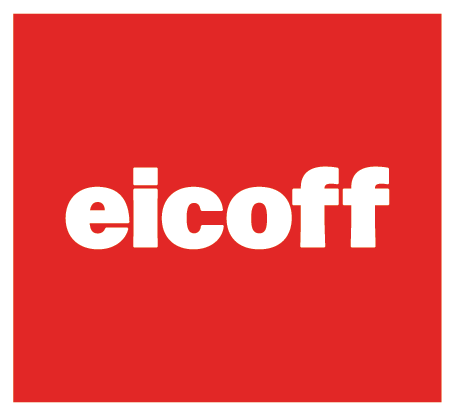5 Bold Predictions For Social Media In 2025
Author: Steven Rosenbaum Source: Media Insider
1. TikTok will sell. TikTok's ownership drama will finally reach its climax with a sale to a U.S.-based consortium - likely including some combination of high-profile tech figures like Trump or Musk alongside institutional investors. Despite the Supreme Court's pending decision and various legislative pressures, the platform's massive cultural and economic footprint makes a complete ban increasingly unlikely.
The most probable outcome? A carefully orchestrated sale that satisfies national security concerns while maintaining TikTok's addictive algorithm and business model. This means Gen Z users won't see meaningful changes to the platform's engagement-driven mechanics that mental health experts have long criticized.
That being said, the "people's bid" led by Frank McCourt's Project Liberty offers a new way to imagine TikTok.The Decentralized Social Networking Protocol (DSNP) empowers users with full ownership of their data, prioritizing privacy, transparency, and interoperability across platforms by eliminating central control and adopting fair monetization models.
Today Kevin O'Leary, known to millions as Shark Tank's "Mr. Wonderful," joined forces with the “people’s bid.” O'Leary's crowdfunding effort for individuals to register interest at WonderfulTikTok.com will now be folded into the “people's bid,” which will help ensure individuals and small businesses have a stake in the future of TikTok. This makes the McCourt effort a growing force for change.
Key Predictions:
Someone will acquire TikTok by Q3 2025, with traditional corporate interests vs. reform-minded bidders in play.
The platform's algorithmic engagement model could remain largely unchanged despite ownership transition
Creator economy will see temporary disruption but stabilize within six months of the sale.
Chinese technical teams will be gradually transitioned out over 18-24 months.
2. Gen Z will pioneer new digital spaces. The exodus from mainstream social media will accelerate in 2025 as Gen Z abandons algorithm-driven platforms for more authentic digital spaces. Rejecting the passive consumption model of traditional social networks, young users will gravitate toward intimate communities built around shared values and active participation. Five distinct types of platforms will emerge to serve this shift: Truth-Seeking Communities where transparent communication and fact-checking reign supreme; Ethical Digital Communes organized around sustainability and social justice; Mobilization Networks enabling rapid organization around causes; Value-Based Commerce Spaces that blend conscious consumption with community building; and Dialog-Driven Platforms fostering genuine discussion over viral content. These emerging spaces will fundamentally challenge current social paradigms by prioritizing genuine connection over engagement metrics and community impact over individual influence.
Key Predictions:
Small-group platforms limiting communities to 100-200 members will see rapid adoption.
At least three major niche platforms will reach 10 million monthly active users by focusing on authentic connection over scale.
Real-time, ephemeral content will replace algorithmic feeds as the primary form of communication.
User-owned communities will emerge, with governance and moderation controlled by members.
Traditional influencer marketing will decline as peer-to-peer recommendations become the dominant form of social commerce.
3. Advertisers will demand safer platforms. The advertising industry is approaching a watershed moment in its relationship with social media. Major brands will implement unprecedented safety standards, introducing platform certifications that measure user wellbeing and ethical content moderation. Industry leaders will establish a "Digital Safety Coalition," redirecting billions in ad spend toward certified safe spaces. We'll see the rise of "wellness metrics" in advertising dashboards, measuring not just engagement but user mental health impact. Brands will demand transparent AI content filtering, third-party safety audits, and real-time crisis response protocols. This shift will force platforms to choose between maintaining engagement-driven algorithms and securing premium advertising revenue.
Key Predictions:
Major brands will allocate 30% of digital budgets to "certified safe" platforms.
New ROI metrics will incorporate social impact and mental health measures.
Independent safety rating agencies will emerge as crucial market intermediaries.
Premium ad rates will develop for verified safe-space inventory.
Platforms will create separate "brand safe" and "general" content tiers.
4. Parents will take center stage.The parent-platform relationship will undergo a radical transformation in 2025. Moving beyond basic screen time limits, parents will organize into powerful advocacy networks demanding structural changes. New parent-led organizations will emerge with technical expertise to audit platform safety measures and algorithmic impacts on youth. Platforms will be forced to introduce "Family Impact Statements" for major feature updates, similar to environmental impact reports. We'll see the rise of parent-developed overlay tools that provide real-time monitoring and intervention capabilities. Most significantly, parent groups will push for legislation requiring platforms to offer "minor-safe" versions with verified age gates and stripped-down, safety-first features.
Key Predictions:
Parent advocacy groups will secure seats on platform advisory boards.
New legislation will require platforms to provide "minor-safe" default settings.
Real-time parental oversight tools will become standard platform features
Platforms will face regular "family impact" audits from independent organizations
Age verification technology will finally see widespread implementation
5. AI integration will face critical challenges. Social media's AI integration will hit major roadblocks, particularly in health-related applications. Several high-profile incidents of AI systems making dangerous medical recommendations will spark regulatory scrutiny. Mental health chatbots will face backlash for missing crisis signals and providing inappropriate advice.
Privacy concerns will emerge around AI's handling of sensitive health data, leading to class-action lawsuits. These challenges will force a broader reckoning about AI's role in social media, leading to the development of new safety frameworks.
Key Predictions:
Multiple instances of AI systems providing dangerous health advice will emerge.
Healthcare providers will demand regulatory oversight of AI health features.
Major platforms will face legal challenges over AI privacy breaches.
Mental health professionals will call for strict guidelines on AI counseling.
New standards for AI integration in social media will be developed.
Looking ahead to 2025, these predictions point to a social media landscape in transition. While TikTok's sale will dominate headlines, the real transformation will come from Gen Z's push for authentic spaces, advertisers' demand for safety, parents' growing influence, and the sobering reality check on AI integration. Success in this new era will require platforms to balance innovation with responsibility, growth with safety, and engagement with well-being.


